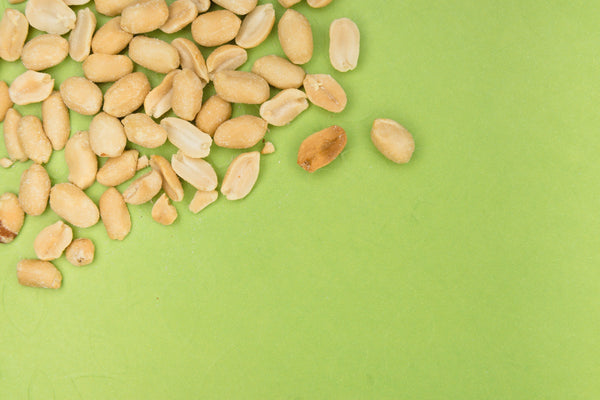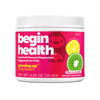Are "Zero Sugar" Drinks Okay for Kids?
share this article
 When you see “zero sugar” or “no sugar added” on your child’s drink, it’s easy to assume it’s a healthier choice. But many of these drinks contain artificial sweeteners that may have some downsides for kids.
When you see “zero sugar” or “no sugar added” on your child’s drink, it’s easy to assume it’s a healthier choice. But many of these drinks contain artificial sweeteners that may have some downsides for kids.
It can feel overwhelming to sort through the choices between sugary drinks and zero sugar options, so let’s break it down and help you make an informed decision for your little one.
What Are “Zero Sugar” Drinks?
Zero sugar drinks avoid using traditional added sugars like table sugar. Instead, they use alternative sweeteners, also called non-nutritive sweeteners, to create a sweet taste without adding calories. This is common in sodas, sports drinks, energy drinks, juices, and flavored waters.
You can identify zero sugar drinks by checking the nutrition facts label for “Sugar Alcohols” or reading the ingredients list for these sweeteners:
-
Artificial sweeteners: aspartame, sucralose, saccharin, acesulfame potassium
-
Sugar alcohols: xylitol, erythritol, sorbitol, maltitol, mannitol
-
Natural sweeteners: stevia, monk fruit, allulose
These sweeteners are 180 to 20,000 times sweeter than sugar which may affect how your kiddo perceives the taste of sweetness over time. (1).
What the Research Says About Alternative Sweeteners and Kids
There is limited research directly studying alternative sweeteners in kids. Most of what we know comes from studies in adults and smaller studies in kids.
While the FDA has approved these sweeteners as safe, some research shows that children who consume more zero sugar products are more likely to be overweight or obese. However, this could likely be a reflection of their overall diet being highly processed (2), rather than a direct result of the sweeteners themselves.
There’s also evidence that when kids regularly consume sweet-tasting drinks without any real sugar or calories, it may confuse their natural hunger cues and contribute to overeating or weight gain (2).
There has also been concern that non-nutritive sweeteners are linked to cancer, but studies in animals and adults have not found any connection (1).
Although more research needs to be done on the long term effects of sugar substitutes in kids, the American Academy of Pediatrics states there’s no strong reason that kids cannot use non-nutritive sweeteners (1).
Pros and Cons of Zero Sugar Drinks for Kids
When making nutrition choices for your child, it’s important to find a balance between supporting their health, avoiding unnecessary restriction, and keeping things practical for your family’s routine. Every child is different, and your medical team can help guide you if you have specific concerns.
Here are some general pros and cons to consider:
Pros:
-
No added sugar or calories. This can be helpful for kids who are obese or have diabetes when used as part of a healthy, balanced diet that includes plenty of whole foods and physical activity.
-
Lower risk of cavities compared to sugary drinks. Because our mouth’s bacteria doesn’t convert artificial sweeteners into acid, they are less likely to cause cavities. However, some zero sugar drinks can still have acids that erode teeth or natural sugars (like fructose) that can cause cavities (3).
-
Helpful as a transition tool. If you’re trying to quickly reduce your little one’s sugar intake, zero sugar drinks can serve as a temporary bridge to eventually stop sweetened drinks completely.
Cons:
-
Can increase preference for sweet foods. Because sugar substitutes can be 180 to 20,000 times sweeter than real sugar, they can train kids to prefer very sweet flavors, making it harder to enjoy naturally sweet whole foods. (1)
-
May cause bloating, gas, or diarrhea. Some non-nutritive sweeteners, especially sugar alcohols, are only partially absorbed in the gut and can result in gut issues for many kids (3).
-
Doesn’t provide energy when kids need it. For active kids or athletes drinking sports drinks, they need the real carbohydrates and sugar to replace their energy stores and refuel for the rest of the game.
-
Can displace more nutritious options. Zero sugar drinks may replace more nutritious beverages like water or milk, and may slightly lower appetite which could reduce the intake of nutrient-rich foods.
-
Potential negative impact on long term gut health. Although this is still being researched, artificial sweeteners may affect the balance of bacteria in the gut, which can weaken the body’s defenses, cause inflammation, and disrupt metabolism (4).
Alternatives to Zero Sugar Drinks
If you are trying to lower your kiddo’s added sugar intake without turning to artificial sweeteners, here are some alternatives:
-
Water with fruit slices or mint
-
Unsweetened sparkling water
-
Unsweetened flavored water
-
Diluted natural juice
-
Milk or fortified non-dairy milk
The Bottom Line
Outside of specific medical needs, there are few strong benefits to giving your little one zero sugar drinks. While these drinks are considered safe, their potential short and long-term effects make it reasonable to limit them.
At the same time, it’s important not to label any food as “bad” or forbidden. Instead, focus on offering a wide variety of whole foods and beverages - no single food or ingredient will make or break your kid’s health.

















